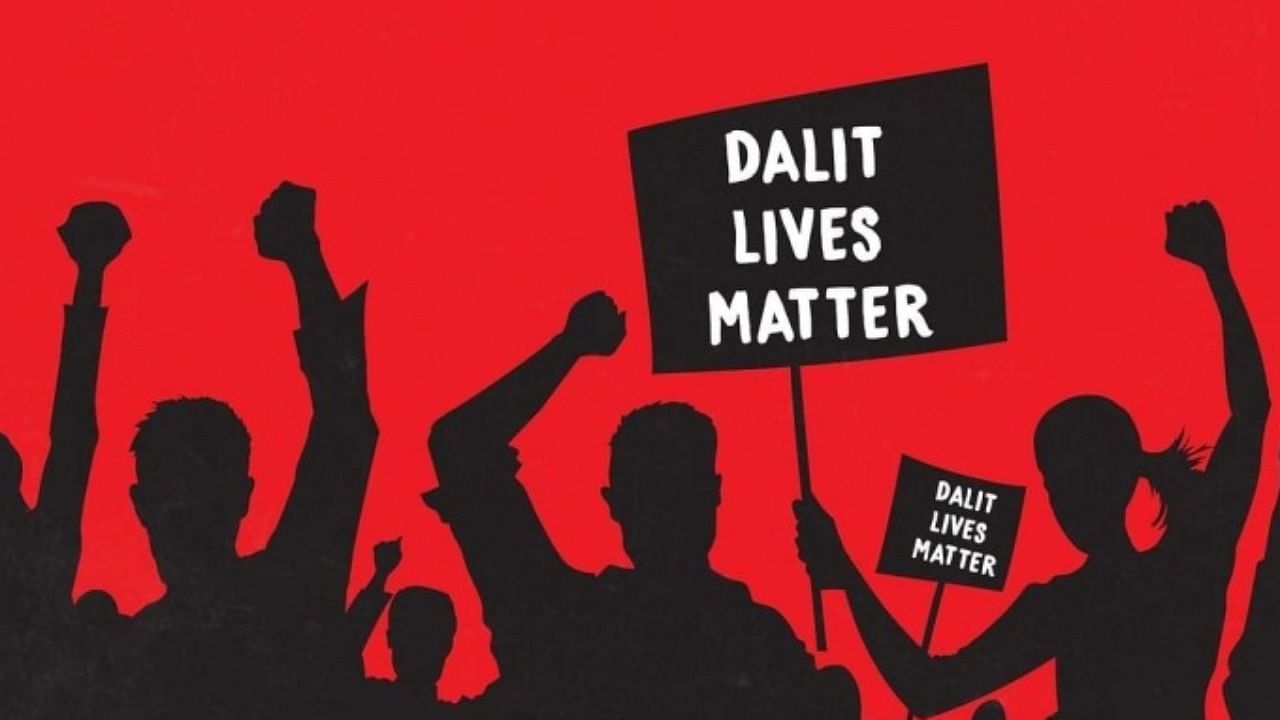
Incidents of violence against Dalits have been increasing in recent times. They range from the everyday norm of social humiliation and discrimination to violence and murder of Dalit youths for sporting a moustache, for riding a horse, for marrying outside one’s caste and even for demanding equal wages. Though the tragic tales of perpetual caste violence are unnerving; the ruling political class offers no roadmap to correct the deplorable situation. As state authorities often function under the guidelines of Hindutva forces, the possibility that the constitutional rights of Dalits will be protected fairly appears remote today.
Ambedkar and democracy
Untouchables were historically treated with disgust and prejudice, were confined to do the worst menial occupations and excluded from major civic and cultural engagements. Ambedkar mainstreamed the problems of the untouchables at the national discourse and led heroic struggles against such inhuman order. India’s new Constitution explicitly directed the state to safeguard the worst-off social groups form social oppression, ensuring them dignity and liberty. Ambedkar thought that the new Indian state -- equipped with the ideals of equality, freedom and aspirations for national unity -- will be fundamentally distinct from its ‘Brahmanical’ past.
Second, Ambedkar’s political activism substantively elevated the meaning of citizenship. The reservation policy made it possible that the state institutions are socially inclusive, allowing a crucial representation of the socially depressed classes in the nation-building processes. Dalits equipped with constitutional rights soon emerged as a young generation of educated middle class, capable of exploring their rights as competent citizens.
Finally, Ambedkar also inspired Dalits to participate in democratic deliberations as independent political actors. He visualised Dalits as potential leaders of the vulnerable social groups and of the proletariat class. He wanted to improvise the Dalit image from being the poor claimants of state’s aid to become the vanguard political class to bring social transformation. The later Dalit movement raised the questions of social injustices and class oppression emphatically and allowed the Dalit-Bahujan political parties to influence the political sphere.
Quest for social justice
Dalits’ claim to enjoy civil liberties or to participate in the modern spheres of power as robust independent agents, are not being welcomed by conservative social elites. Their assertive voices in democracy are noticed as a challenge to the Hindu civilisational ethos. In contemporary times, Dalits are not only facing challenges at the mainstream political front, but their quest to participate in the public sphere as rights-bearing citizens is also under threat.
In the post-liberalisation period, Dalit entry in modern institutions is reduced with excessive privatisation of public sector units. Further, the market is unfree from caste prejudices and often recruitment of the workforce is managed through conventional caste or class networks that openly discriminate against Dalit aspirants. Modern institutions and free market, both have failed to uphold the ideals of social justice.
Further, the future of independent Dalit politics appears bleak today. With the astonishing rise of Hindutva politics, political parties led by Dalits, like the Bahujan Samaj Party in Uttar Pradesh or the Lok Janshakti Party in Bihar have significantly lost their impressive social base. Importantly, it is the social sphere that has emerged as a depressing location for the Dalits.
It is assumed that hatred against Dalits is an essential component of conventional Hindu psyche and necessary ideal to preserve the Brahmanical caste order. Therefore, our political and civic conscience often remained detached from caste brutalities and hardly acknowledges it as a terrible social malady. Because the perpetrators of atrocities are often granted immunity by the state, judiciary and civil society, the rising cases of caste violence, rapes and murders have become an acceptable social norm. The subdued caste prejudices and anti-Dalit sentiments have returned in action today.
Dalit human rights
The right-wing political ideology has very little to offer when it comes to the question of caste atrocities and social injustices. Hindutva proponents cunningly offer a sentimental rhetoric about India’s rich social reform traditions and suggest that their cultural organisations are committed to building social harmony between various castes. However, on the ground, there is a visible absence of right-wing organisations, leaders and activists providing legal safeguards or social security to the victims of caste atrocities.
Till the recent past, it is the sporadic protests by Dalit civil society organisations that have raised the alarm against the incidents of caste atrocities. Be it the Una protests in Gujarat or the justice for Rohith Vemula movement in Delhi, be it the massive street protest in April 2018 to protest against the dilution of the Prevention of SC/ST Atrocities law or the organised national campaign to punish the criminal perpetrators in the Hathras rape case -- Dalit groups have shown moral courage to organise protests and fight for justice. However, as the state often coercively clamps down on Dalit social and political activists, it is now difficult and dangerous even to organise civil protests to defend Dalits’ human rights.
A sincere national deliberation is required to restore the validity of Dalits’ human rights, to ensure their participation in modern institutions of power and to rethink the future of Dalit-Bahujan political ideology. The votaries of social justice must come together to organise a national campaign for the protection of civil liberties and constitutional safeguards of Dalits. Such a united front must influence the state to perform its constitutional duties fairly and appeal to the civil society that the fundamental rights of Dalits as citizens shall not be violated. A new form of social justice politics may arise out of such deliberation.
(The writer teaches at the Centre for Political Studies, JNU)